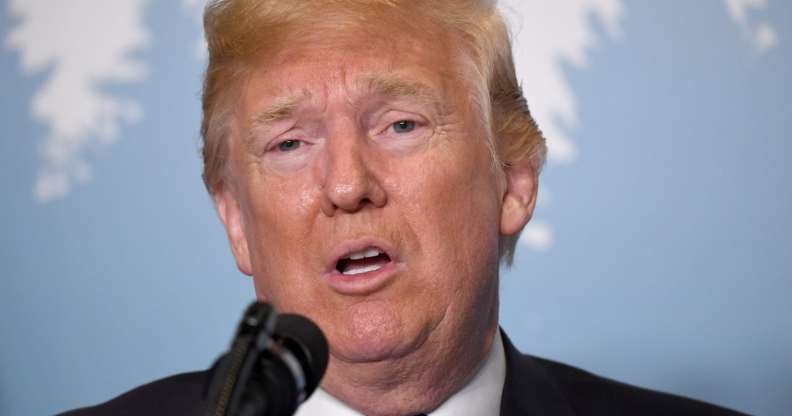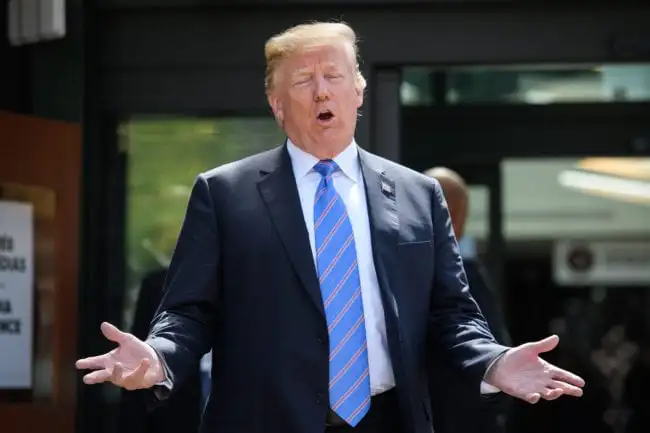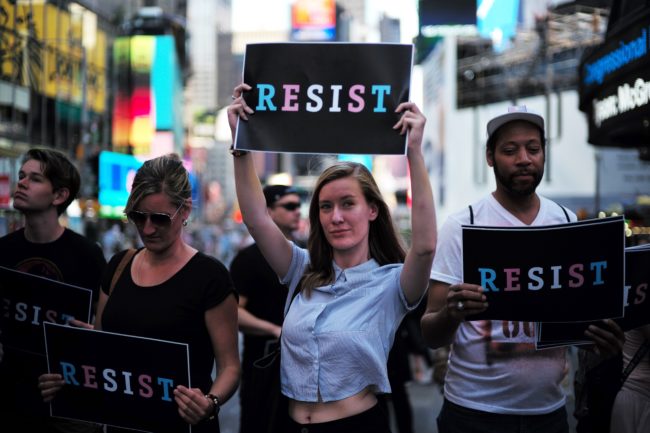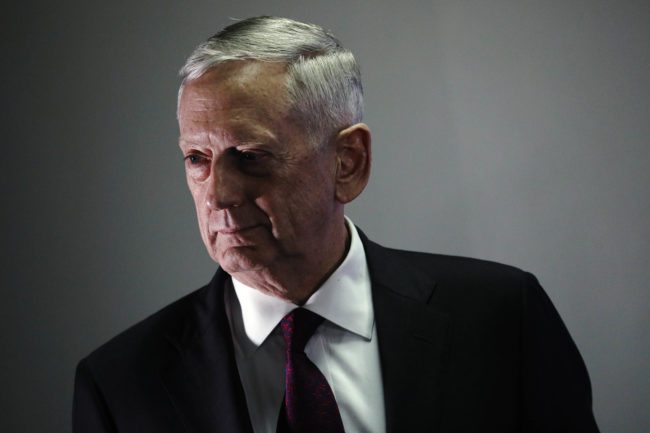Another US court rules against Donald Trump banning trans people in the military

The Trump administration is responsible for separating 2,300 children from their families (SAUL LOEB/AFP/Getty)
Another US court issued a ruling rejecting US president Donald Trump’s proposal to ban most transgender people from serving in the military.
The district court in Washington becomes the second court to block the Trump administration, since it revealed the updated policy in March.
Trump first proposed blocking all transgender people from serving in the military in a series of tweets in July 2017.
He then endorsed an updated proposal by defence secretary Jim Mattis in March to prevent “transgender persons with a history or diagnosis of gender dysphoria” from serving in the military “except under certain limited circumstances.”
In a ruling released on Monday (August 6), district judge Colleen Kollar-Kotelly argued that the amended proposal is effectively a categorical ban on all trans people from serving in the military, writing: “By targeting proxies of transgender status, such as ‘gender dysphoria’ and ‘gender transition,’ and by requiring all service members to serve ‘in their biological sex,’”
The judge refused a request from the Trump government to lift an injunction she had made against the US president’s original ban.
The latest decision comes after a US District Judge in Seattle handed down a ruling in June, which rejected the administration’s request to stop most trans people from serving in the armed forces.
The Trump government had appealed judge Marsha Pechman’s order from April, which created an injunction on instituting the ban.
Pechman had compared Trump‘s policy to the historical exclusion of blacks from the military and the ban on mixed units when she rejected a revised ban in April.

It’s been 11 months since Trump announced his trans ban (Leon Neal/Getty)
In her ruling, Pechman: “The status quo shall remain ‘steady as she goes,’ and the preliminary injunction shall remain in full force and effect nationwide.”
Pechman added that “because transgender people have long been subjected to systemic oppression and forced to live in silence, they are a protected class.
“Therefore, any attempt to exclude them from military service will be looked at with the highest level of care.”
The judge also said the government needed to demonstrate that the proposed ban “was sincerely motivated by compelling interests, rather than by prejudice or stereotype, and that it is narrowly tailored to achieve those interests.”

Opposition to the ban has been fierce and vocal (JEWEL SAMAD/AFP/Getty)
In April, nearly half of all US Senators signed a letter lashing out at the ban and equating it to the ‘Don’t Ask Don’t Tell’ policy which banned openly gay troops.
Trump’s updated proposed policy on trans troops was based on a memo released by Mattis, who said there were “substantial risks” associated with trans people serving in the army.

Defense Secretary James Mattis (Jonathan Ernst-Pool/Getty)
The defence secretary said that permitting some of them to serve would mean exempting them from a series of mental, physical and sex-based standards.
He added that it “could undermine readiness, disrupt unit cohesion, and impose an unreasonable burden on the military that is not conducive to military effectiveness and lethality.”
In June 2016, the then president Barack Obama asked the Pentagon to lift its long-held ban on transgender soldiers serving openly in the military.

